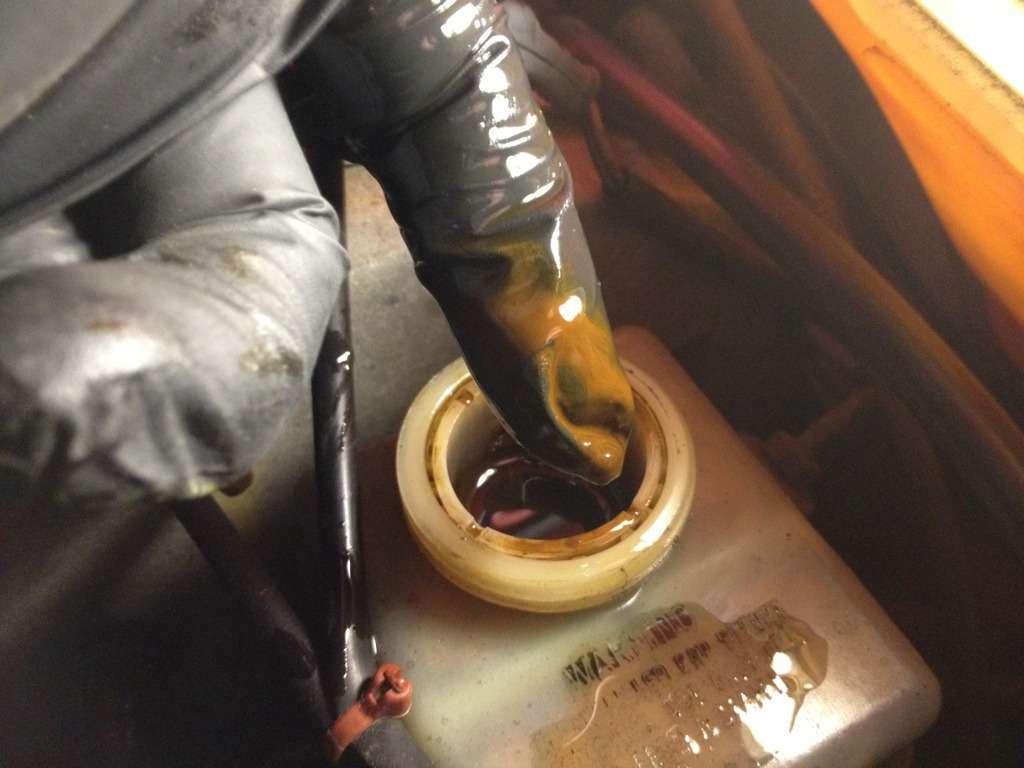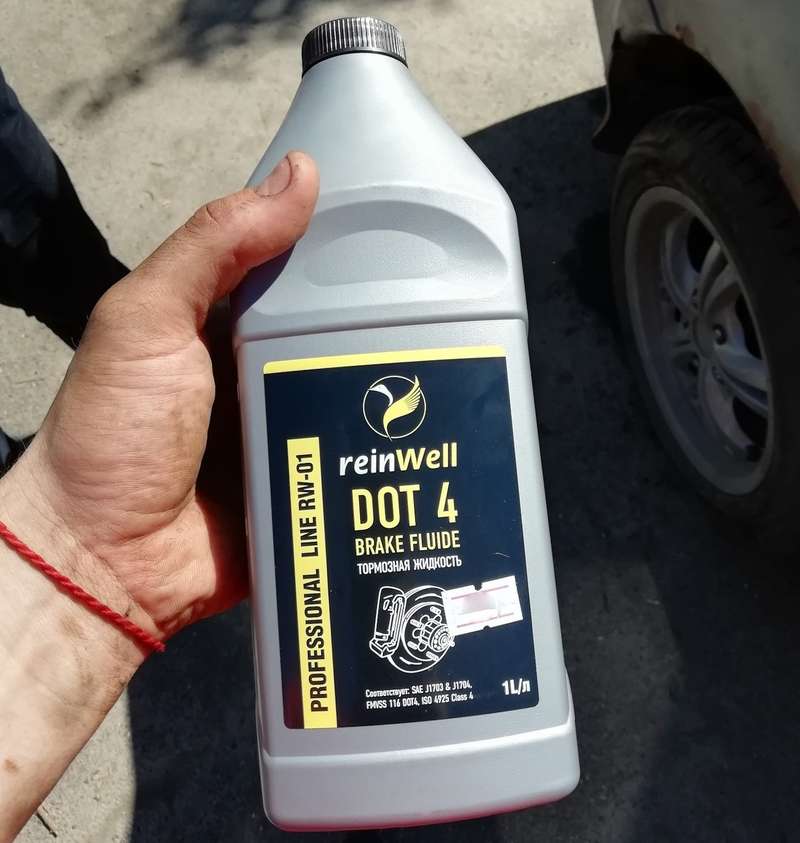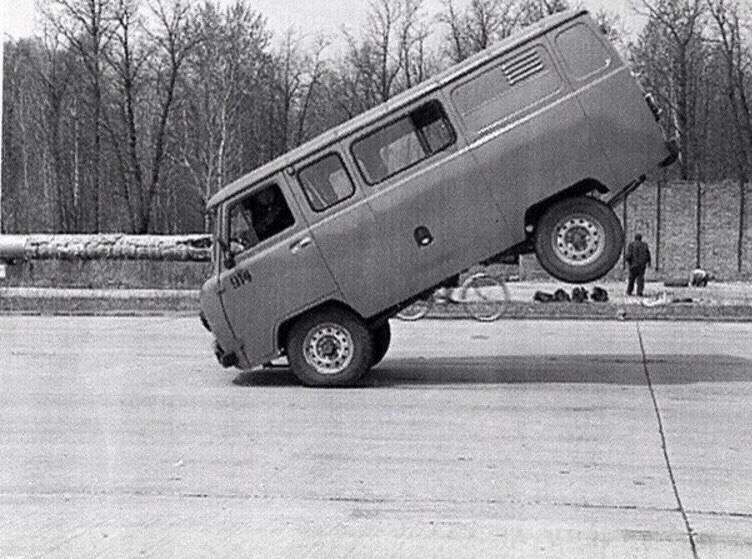In general, the operation of the hydraulic braking system is based on the physical principle of all fluids – they do not compress and retain their volume. It looks like you pour water, alcohol or oil into the system – and it will work. For the most part, yes, it will work. But in real life, when it’s hot or cold outside, plus high taxes, modern brake fluid still have many requirements.
When the car slows down, friction causes the brake pads and discs to become very hot, while at the same time heating the fluid itself. In active mode, when you often have to use the brake pedal, or when you drive down a mountain hose, the liquid can just boil. Then a mixture of liquid and vapor is formed in the system – and this cocktail is already compressible and cannot transfer the desired force. The braking system does not work. The driver presses the pedal – it “fails”, and the car does not slow down.
The culmination of the process, when the “brake” boils, is called boiling point of liquid. For modern POINT4 this indicator must be at least 230 degrees Celsius.
Another important indicator is: viscosity:. It is a fact that brake fluids are hygroscopic and have acquired excess moisture in winter thicken at low temperatures. In this case, the brake pedal is stuck and the system shuts down. At the same time, too low a viscosity can cause fluid to leak from the brake system and form air bubbles, which has the same effects as cooking.
The maintenance of the braking system should not be neglected. In addition, its elements – pistons, valves and plungers – move and move during the operation of the hydraulic system. To ensure that moving parts last longer, the brake fluid must also be lubricating effect. In addition, in a wide temperature range. However, one should not forget brake system maintenance when changing pads or discs.

As you can see, modern brake fluid (TF) is a complex mixture of various base substances and additives that can work in difficult conditions. And the duration of its safe operation is characterized by the boiling point, the value of which for POINT4 must be at least 230 . to beºС in the so-called “dry”, that is, the original version. Indeed, over time, the brake fluid absorbs moisture from the outside up to 2-4%, lowering its boiling point – specialists call it “moistened”. When this decrease reaches a critical level, further operation of the fluid can become dangerous. By the way, the minimum permissible boiling point of a moistened liquid is determined by GOST at the level of 155ºС.
Therefore, the shelf life of TJ is limited to 2 years or 60,000 kilometers. With charged and sports cars, the fluid should be changed twice as often. In addition, the brake fluid has cleaning and anti-corrosion properties, which eventually lose their properties in one way or another. And expired fluid gradually oxidizes and clogs brake hoses and lines, corrodes plastic and rubber parts and seals.
In addition, it is important to initially purchase a high-quality product that meets all modern requirements. In order to maintain its properties and efficiency throughout the period of use, it was faithful to rubber and plastic products, prevented the formation of corrosion and slag, and was also accessible and easy to use. Such as, for example Reinwell DOT 4. With the characteristics of the drug, everything is in order – implying that it belongs to a German brand. Finally, the brand reinWell has been known as a manufacturer of professional automotive chemicals for service stations since 2009. In addition, the formulation of all technical fluids, including brake fluids, is developed in Germanywhere the most modern technologies and high quality standards are concentrated. And with the arrival in Russia, the company set up production on site and at the same time mastered the consumer segment.
Localization in our market has made it possible to lower prices by reducing customs and logistics overheads, while rescuing themselves from exchange rate fluctuations. In addition, the packaging was deliberately simplified so as not to increase the final cost price. As a result, customers do not pay too much for elegant packaging and colored stickers, but simply buy the desired product. Although without all these clumsy bells and whistles Reinwell DOT 4 looks pretty solid and, if you will, more expensive than the money being asked for it.
Brake fluid from ra well sold in a liter can. It is based on glycol ethers and boric acid esters with the addition of corrosion inhibitors and antioxidants. The product is suitable for both cars with a conventional braking system and cars with abs and electronic motion control systems.
The phrase “Brakes were invented by cowards” is especially ridiculous these days, as speeds get faster and traffic gets tighter. In addition to timely replacement of brake pads and discs, don’t forget what drives them: brake fluid. Without it, even the most modern brake calipers, discs and pads are just a set of non-functioning spare parts.
The importance of the braking system for a modern car can hardly be overstated. Not only the ease and confidence of driving a vehicle, but also its safety, and often the health and even life of the driver and passengers, depend on the effectiveness of the work. And high-quality brake fluid is the key to trouble-free operation of the entire system.







